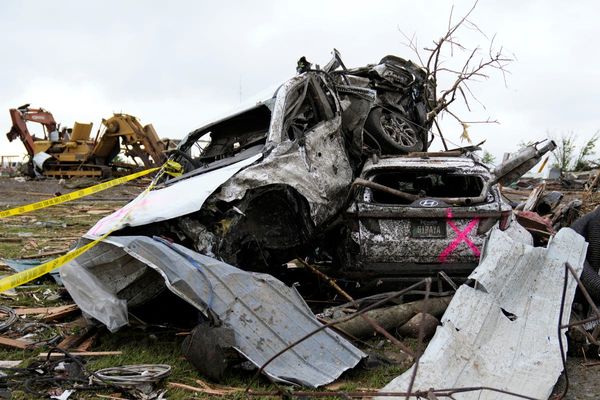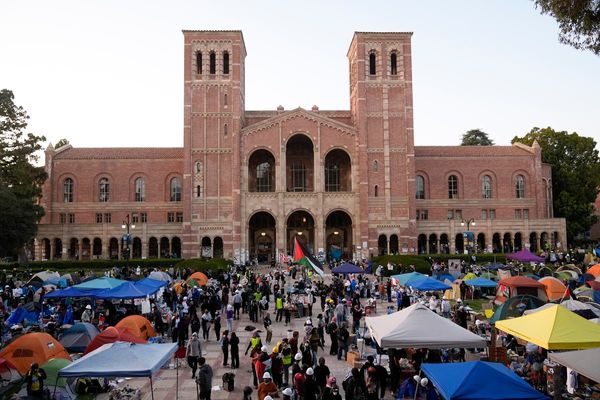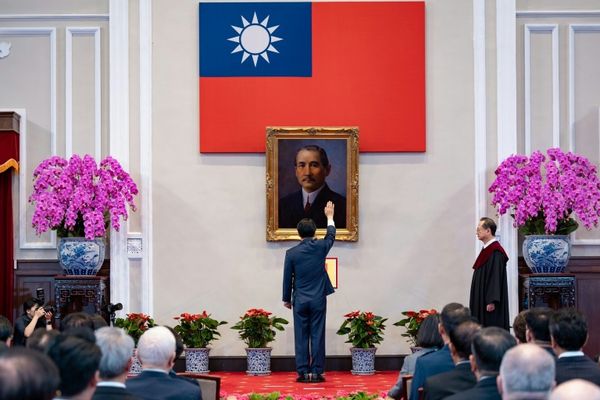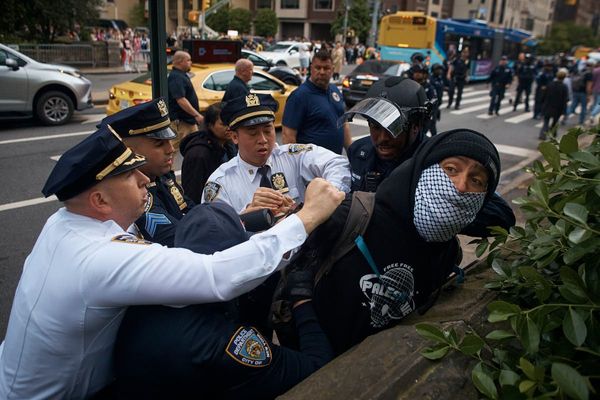When people started talking about the COVID brain fog, I thought it sounded faintly ridiculous, like one of those diagnoses made in Victorian literature to cover anything from meningitis to menopause.
Alas, brain fog is all too real, and it doesn't come in on little cats' feet either. It slurps and slithers around in your head in great smeary splodges, like a cornucopia of slugs. Big ones and little ones, smudging your thoughts, snacking on syntax, gumming up your words until a blank stare feels like a perfectly reasonable response to just about anything.
I know because I have it, am trying to write my way through it, which should be an adventure for us all. But I am a columnist and I just had COVID and we all know that columnists who get COVID are legally and contractually required to write about it.
I brought my COVID home from Paris, even though the cab driver who picked us up at Charles de Gaulle Airport three weeks ago took one look at our masks and assured us that COVID had left the City of Light for good. C'est tout. Rien.
Insert boilerplate here about how we wore masks while indoors anyway (which we did), were all vaxxed and boosted to the legal maximum (which we were).
You would think Parisian COVID would be fancier somehow, but the symptoms that began appearing the day after my return home were shamefully pedestrian — the throat full of razor blades, the cough that made it worse, the spiking fever and pounding head. The only thing vaguely French about it was the languor; never in my life have I spent so many consecutive hours lying down. The chaise longue suddenly makes all kinds of sense to me.
I'm a bit better now. Yesterday I did not have the energy to open my laptop and today I am attempting to wrest words from the slugs — and wondering if, like Coleridge, I can raise poetry from a fever dream. As in "Kubla Khan," my trip sparkles like a pleasure dome and echoes with cries of "Beware!"
It's not as if my family and I have lived in a bubble since March 2020, but we have spent an unprecedented amount of time in our home, making plans and canceling them as the pandemic ebbed and flowed.
Having booked and rebooked this trip several times, we had high hopes for both adventure and respite — a chance to take a breather from the maddening chafe of the American culture wars, the ominous drum beat of every news cycle. While we weren't ready to follow the Europhile throngs to home-ownership in Portugal, we were definitely looking to be pleasantly overwhelmed by a city and a culture not our own.
We did not, however, expect it to be a version of "Everything Everywhere All At Once." Between canceled flights, overcrowded airports, a French terrorism trial, an American terrorism hearing, a French election, Fashion Week, the overturning of Roe vs. Wade and our souvenir bout of COVID, it certainly felt like that.
It's not just that, as the adage goes, you take your troubles with you so much as there are always going to be troubles wherever you are.
To recap: LAX was a breeze, but we missed our connecting flight in Heathrow because British Airways was in the midst of a labor negotiation, understaffed and canceling flights every five minutes, causing endless lines at security. We were put on a late afternoon flight the next day and shuttled to a hotel airport, where a sign — "Welcome British Airways travelers" — seemed to indicate a more chronic problem.
Two weeks later we would be spending the night in an O'Hare Airport hotel, our connecting flight having been canceled due to mechanical difficulties.
In between, of course, there was Paris, in June no less, when the sun sets at 10 p.m. and rises a few hours later. Glorious, undaunted and yet far from unchanged. Notre Dame remains fenced off and festooned with scaffolding and cranes; reconstruction from the devastating 2019 fire is expected to take another two years.
A block or so away, the heavily touristed sidewalks in front of the Palais de Justice were blocked by barricades and dozens of highly armed police officers. Within the Palais, 20 men were on trial for their involvement in the 2015 terrorist attacks in Paris, including the carnage of the Bataclan theater, that left 150 dead; they were found guilty on June 29.
Meanwhile, the city was invaded by models and celebrities for Men's Fashion Week (we watched a stage go up at the foot of Sacré Coeur and if I had known Audrey Tautou would be walking it hours later, I would have figured out a way to stay). It was also rattled by an election in which President Macron's centrist party lost its legislative majority while the far right National Rally won 89 seats. Stagnant wages, rising gas prices and an increasingly divided notion of national identity is not just an American problem. But, hey, Billie Eilish was posting from mere blocks away and isn't that Thomas Brodie-Sangster and Talulah Riley strolling past Le Bon Marché?
We were on a train back from a visit to Versailles when I learned that the Supreme Court had stripped women of constitutionally-protected reproductive freedom. I had spent the day contemplating the tipping point between autocracy and revolution and the often mocking nature of history — Versailles is a monument to privilege but also to the blind assurance that privilege is God-given and eternal. Yet there we were, the unwashed masses, queuing up for sandwiches and crepes at the stands that dot those magnificent gardens while the war between the people and the powerful has moved to other realms.
France quickly denounced the Supreme Court's decision; President Macron's party vowed to propose a bill to make abortion rights part of the French Constitution. "What happened elsewhere must not happen here," he said. Even the far-right leader Marine Le Pen appeared to agree.
It was stirring in a bittersweet way — the country that mirrored our revolution taking up the banner we let fall — but how exactly do you comfort your daughters as they come to terms with the fact that, while they were on vacation, the Supreme Court stripped them of the right to decide what happens to their own bodies?
So getting COVID was not the worst thing that happened during our trip. Au contraire. In some ways the exhaustion and the brain fog provided the respite that even Paris could not. I know I cannot sleep forever, but a part of me is grateful that I can sleep at all.
We are not big believers in convalescence in this country. Gone are the days of rest cures or treatments that involve a month in the hinterlands. "Up and at 'em" is our motto, a national directive to work through the pain, codified into too many workplaces that offer no sick pay and into the minds of too many people working in industries that do.
As my colleague Emily Alpert Reyes just pointed out, denying ourselves the rest required to truly recover from COVID can often make the illness worse. And not just COVID.
We have all been dealt a series of great blows over the last few years; we are all exhausted and in some stage of illness. We all require respite, time and space for recovery.
Lying on my sofa, the battle with the exhaustion feels cumulative, the brain fog almost healing. For a few days, I could not summon the energy for outrage, or fury, or fear; I could only croak requests for chicken pho and rewatch another episode of "The Crown." Everything that happened in the previous weeks, the previous months, seemed very distant. Though apathy is not my natural state, it was, in its own very strange way, restorative.
Being ill always makes one grateful for health when health returns. I'm glad I went to Paris, even though I got COVID, even though I did not find the escape I thought I had so desperately required.
Instead I was reminded that I am also a citizen of the world — and that like Coleridge's Xanadu, that world is both holy and enchanted and a savage place. When we are struck down, we need to rise again but we also need to give ourselves time to suffer and then to heal. We cannot fight in a fog.







